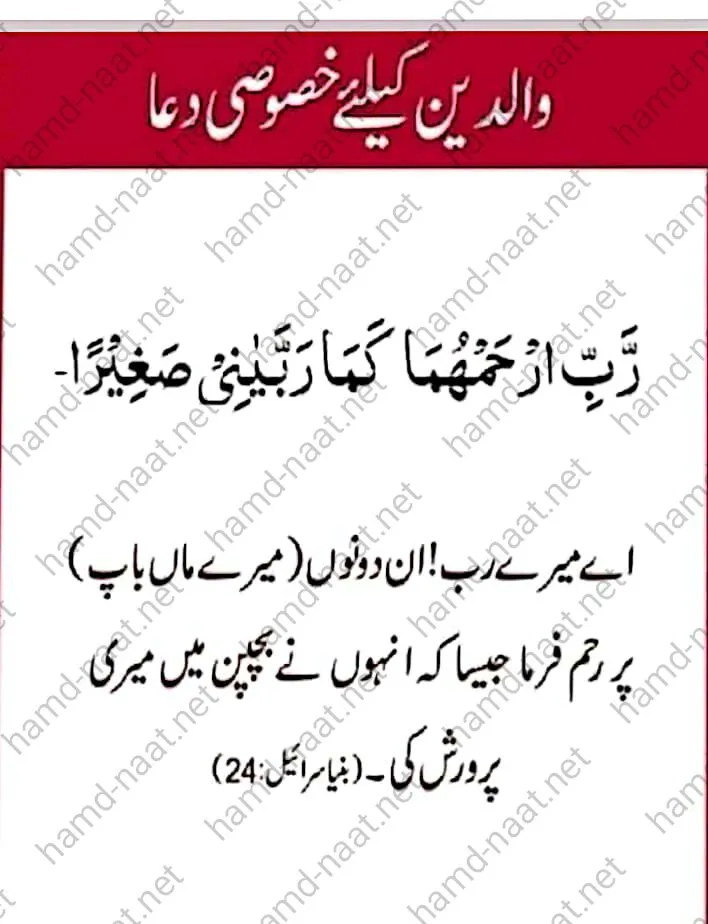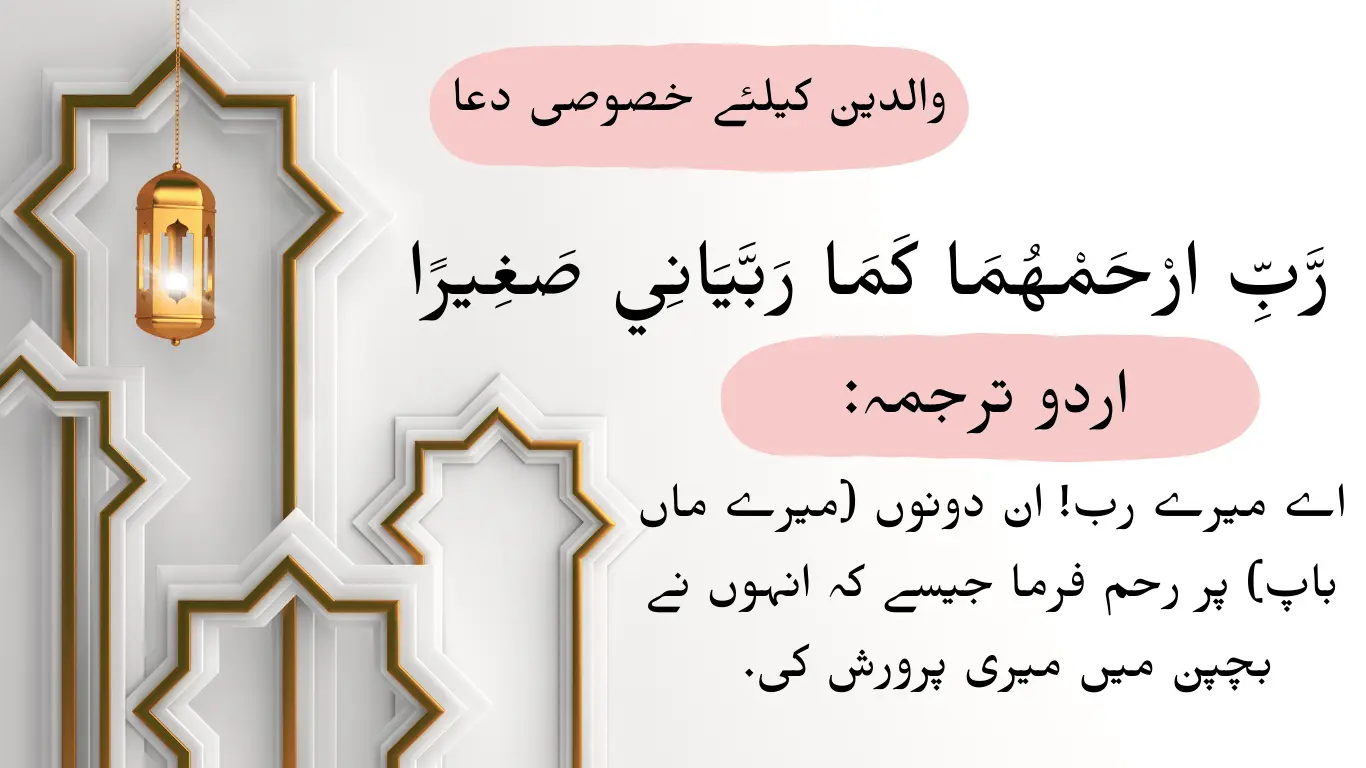Caring for parents is one of the most emphasized duties in Islam, and there are many beautiful supplications (duas) made for parents in the Quran and Hadith. One of the most significant and heartfelt prayers for parents comes from Surah Al-Isra (17:24), where Allah encourages us to pray for our parents as they showed mercy and care for us during our childhood.
In this article, we will discuss the powerful dua for waldain, its meaning, and the benefits of making such supplications.
The Dua for Parents (waldain) (In Arabic and Translation)
The following is a commonly recited dua for waldain, derived from the Quran:
Dua in Arabic:
رَّبِّ ارْحَمْهُمَا كَمَا رَبَّيَانِي صَغِيرًا
Translation (English):
“O my Lord, have mercy on my parents who raised me from childhood.”
Translation (Urdu):
“اے میرے رب! ان دونوں (میرے ماں باپ) پر رحم فرما جیسے کہ انہوں نے بچپن میں میری پرورش کی۔”

Understanding the Dua for waldain
This dua is not just a plea for mercy for our waldain but is a reflection of the deep bond between parents and their children. When we recite this dua, we are acknowledging the love, care, and sacrifices our parents made for us when we were young and dependent on them. In turn, we are asking Allah to shower His infinite mercy upon them.
Importance of Making Dua for waldain
In Islam, showing respect and kindness to parents is considered one of the highest virtues. The Quran and Hadith emphasize that even after their passing, one should continuously pray for their parents. This dua serves as a source of spiritual connection, love, and reward for both parents and their children.
Key Benefits of Reciting Dua for waldain:
- Divine Mercy: By making this dua, you are asking Allah to shower His boundless mercy on your parents.
- Showing Gratitude: This prayer is a beautiful way to express gratitude for everything your parents did for you.
- Blessings for Children: The Prophet Muhammad (PBUH) said, “When a person dies, their deeds come to an end except for three: ongoing charity, beneficial knowledge, and a righteous child who prays for them.” (Sahih Muslim). Making dua for your waldain ensures you fulfill one of these deeds.
| Musibat Se Bachne Ki Dua |
| Hajat Ki Dua: Your Prayer for Every Need |
| Nazar Ki Dua for Protection from Evil Eye |
| A Guide to Roza Kholne Ki Dua |
How to Make Dua for waldain Regularly
- In Your Daily Prayers: Include this dua in your regular prayers (Salah), especially in sujood (prostration) when your prayers are more likely to be accepted.
- After Salah: Set aside a few moments after every obligatory prayer to recite this dua for your waldain.
- On Special Occasions: Recite this dua during moments of significance like Fridays (Jumma), Ramadan, or other spiritual occasions.
Why Dua for waldain Is So Powerful
The importance of waldain is repeatedly emphasized in the Quran. Their sacrifices, love, and endless support cannot be repaid, but as their children, we can pray for them. In Surah Al-Isra, Allah commands believers to lower their wings of humility towards their parents, and making dua for them is one of the ways to follow this divine command.
Conclusion
Making dua for waldain is a noble act of love, respect, and remembrance. Whether your parents are alive or have passed away, continuing to pray for them ensures that their legacy of nurturing and care lives on. Incorporate the dua for waldain into your daily routine to honor them, seek Allah’s mercy for them, and keep their memory alive in your prayers.
FAQs:
Yes, it is highly recommended in Islam to pray for your waldain even after they have passed away. The Prophet Muhammad (PBUH) taught that making dua for deceased parents is a virtuous deed that benefits both the child and the parents in the Hereafter.
You can recite the dua for your waldain at any time. However, it’s especially effective during your Salah (prayer), after the obligatory prayers, and during the last third of the night when Allah’s mercy is abundant.
Yes, the dua mentioned above (رَّبِّ ارْحَمْهُمَا كَمَا رَبَّيَانِي صَغِيرًا) can be recited for both living and deceased parents, asking Allah to have mercy on them.
By making these heartfelt duas, you not only fulfill an important Islamic obligation but also ensure that your parents receive ongoing blessings from Allah.




